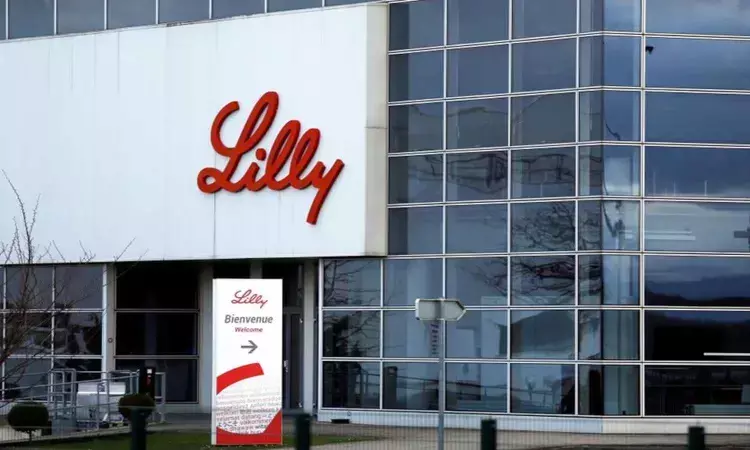- Home
- Medical news & Guidelines
- Anesthesiology
- Cardiology and CTVS
- Critical Care
- Dentistry
- Dermatology
- Diabetes and Endocrinology
- ENT
- Gastroenterology
- Medicine
- Nephrology
- Neurology
- Obstretics-Gynaecology
- Oncology
- Ophthalmology
- Orthopaedics
- Pediatrics-Neonatology
- Psychiatry
- Pulmonology
- Radiology
- Surgery
- Urology
- Laboratory Medicine
- Diet
- Nursing
- Paramedical
- Physiotherapy
- Health news
- Fact Check
- Bone Health Fact Check
- Brain Health Fact Check
- Cancer Related Fact Check
- Child Care Fact Check
- Dental and oral health fact check
- Diabetes and metabolic health fact check
- Diet and Nutrition Fact Check
- Eye and ENT Care Fact Check
- Fitness fact check
- Gut health fact check
- Heart health fact check
- Kidney health fact check
- Medical education fact check
- Men's health fact check
- Respiratory fact check
- Skin and hair care fact check
- Vaccine and Immunization fact check
- Women's health fact check
- AYUSH
- State News
- Andaman and Nicobar Islands
- Andhra Pradesh
- Arunachal Pradesh
- Assam
- Bihar
- Chandigarh
- Chattisgarh
- Dadra and Nagar Haveli
- Daman and Diu
- Delhi
- Goa
- Gujarat
- Haryana
- Himachal Pradesh
- Jammu & Kashmir
- Jharkhand
- Karnataka
- Kerala
- Ladakh
- Lakshadweep
- Madhya Pradesh
- Maharashtra
- Manipur
- Meghalaya
- Mizoram
- Nagaland
- Odisha
- Puducherry
- Punjab
- Rajasthan
- Sikkim
- Tamil Nadu
- Telangana
- Tripura
- Uttar Pradesh
- Uttrakhand
- West Bengal
- Medical Education
- Industry
Eli Lilly Kisunla approved in Japan for early Symptomatic Alzheimer's disease

Indianapolis: Eli Lilly and Company's has announced that the Ministry of Health, Labour and Welfare Japan has approved Kisunla (donanemab-azbt, 350 mg/20 mL every four weeks injection for IV infusion), a Alzheimer's treatment for adults with early symptomatic Alzheimer's disease (AD), which includes people with mild cognitive impairment (MCI) as well as people with the mild dementia stage of AD, with confirmed amyloid pathology.
Japan is the second major market in which Kisunla has been approved for use. In Japan, by 2030, the number of patients with dementia is estimated to be more than 5 million, and AD is the most common cause of dementia, accounting for more than 67% of cases. The number of AD patients is expected to increase significantly compared with other dementias.
"Lilly scientists have been dedicated to research in Alzheimer's disease for more than 35 years, and this news is testament to their ingenuity, perseverance, and commitment to helping people with this disease," said Ilya Yuffa executive vice president and president of Lilly International, Eli Lilly and Company. "Kisunla demonstrated very meaningful results for people with early symptomatic Alzheimer's disease by significantly slowing cognitive and functional decline in our TRAILBLAZER-ALZ 2 study, which included participants from Japan. People around the world want and deserve access to treatment options for this devastating disease. The news is another critical step in ensuring patients with Alzheimer's disease can receive treatment with these first class of amyloid therapies, which could give them more time to do what matters most to them."
Amyloid is a protein produced naturally in the body that can clump together to create amyloid plaques. The excessive buildup of amyloid plaques in the brain may lead to memory and thinking issues associated with Alzheimer's disease. Kisunla can help the body remove the excessive buildup of amyloid plaques and slow the decline that may diminish people's ability to remember new information, important dates, and appointments; plan and organize; make meals; use household appliances; manage finances; and be left alone.
"Alzheimer's disease is a significant healthcare burden in Japan due to the rapidly aging population. We are excited to make Kisunla available in Japan as a new treatment option for early symptomatic Alzheimer's disease," said Yanping Wang, senior vice president of Drug Development and Medical Affairs at Eli Lilly Japan. "Patients treated with Kisunla may have the option to stop treatment once the amyloid plaques are removed, which could help reduce the infusion burden for eligible patients."
Read also: Eli Lilly planning expansion of research centre in India: CEO David Ricks
Ruchika Sharma joined Medical Dialogue as an Correspondent for the Business Section in 2019. She covers all the updates in the Pharmaceutical field, Policy, Insurance, Business Healthcare, Medical News, Health News, Pharma News, Healthcare and Investment. She has completed her B.Com from Delhi University and then pursued postgraduation in M.Com. She can be contacted at editorial@medicaldialogues.in Contact no. 011-43720751
Dr Kamal Kant Kohli-MBBS, DTCD- a chest specialist with more than 30 years of practice and a flair for writing clinical articles, Dr Kamal Kant Kohli joined Medical Dialogues as a Chief Editor of Medical News. Besides writing articles, as an editor, he proofreads and verifies all the medical content published on Medical Dialogues including those coming from journals, studies,medical conferences,guidelines etc. Email: drkohli@medicaldialogues.in. Contact no. 011-43720751


